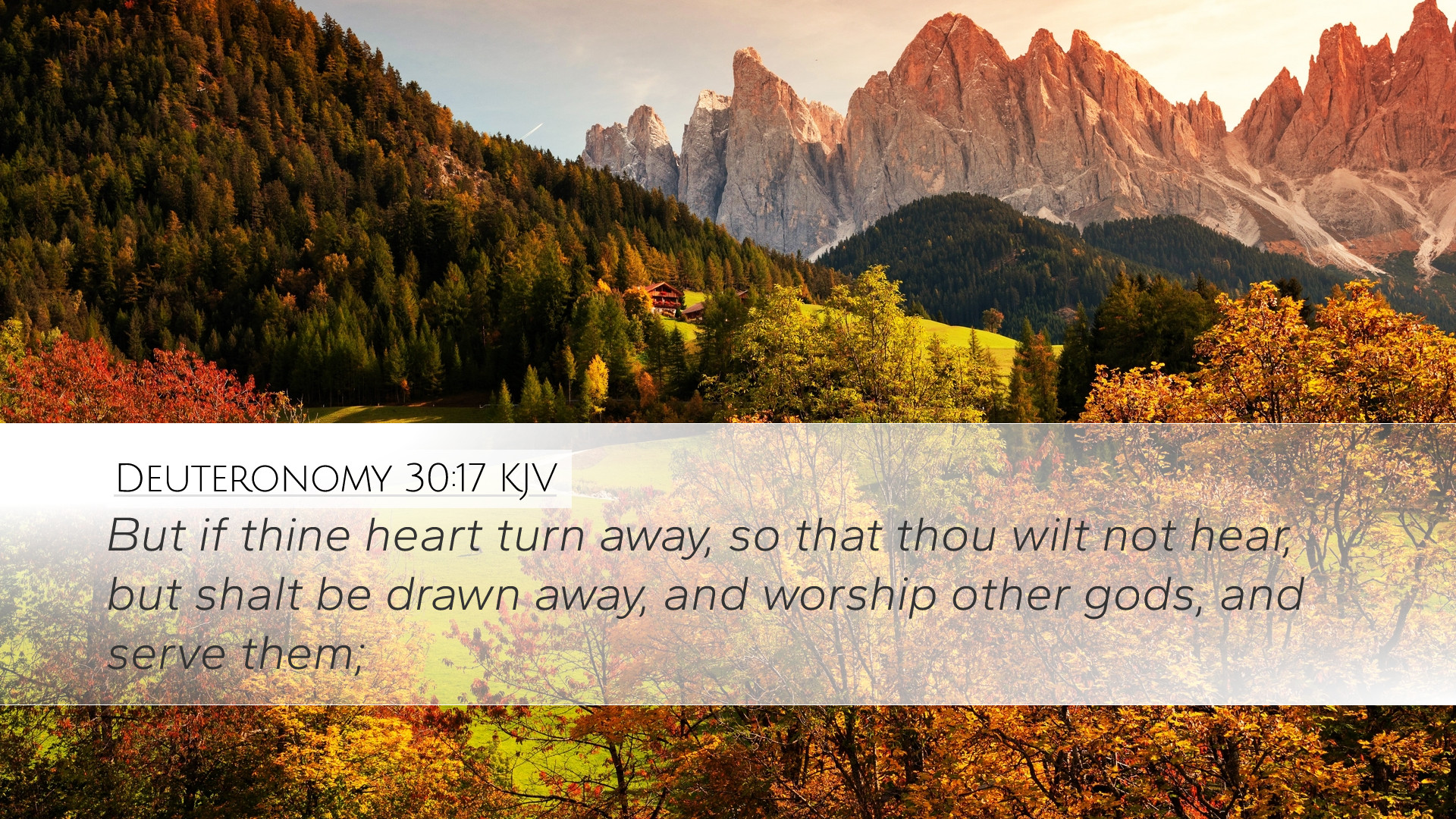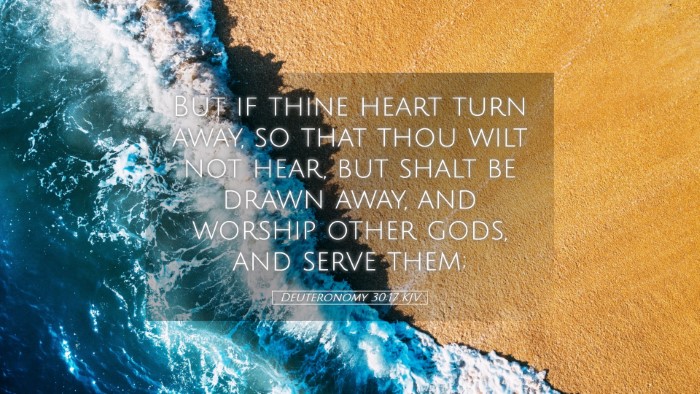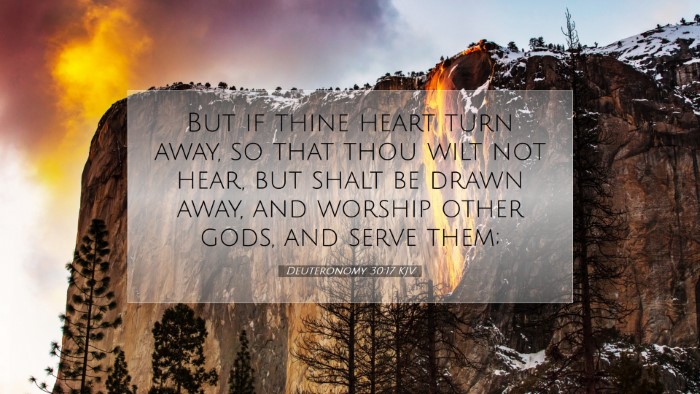Deuteronomy 30:17 - A Comprehensive Commentary
Verse Text: "But if your heart turns away and you do not hear, but are drawn away and worship other gods and serve them," (Deuteronomy 30:17, ESV)
Introduction
The verse selected from Deuteronomy 30:17 is pivotal within the Mosaic covenant context, highlighting the crucial choice between obedience and rebellion against God. In this commentary, we will explore various interpretations and insights from prominent public domain commentaries like Matthew Henry, Albert Barnes, and Adam Clarke, emphasizing the theological and practical implications for today’s believers.
Contextual Analysis
Deuteronomy serves as a covenant renewal document for the Israelites as they prepare to enter the Promised Land. The surrounding chapters reflect the dual themes of blessing for obedience and curse for disobedience, revealing God’s enduring covenantal relationship with His people.
Historical Background
Matthew Henry emphasizes that Moses speaks to the generation poised to enter Canaan, urging them to remember their covenant responsibilities. He reflects on the serious nature of turning away from God, which not only jeopardizes their inheritance but also brings spiritual and physical consequences.
The Nature of the Heart
In examining the phrase "if your heart turns away," both Clarke and Barnes draw attention to the heart's centrality in Biblical thought—a symbol of will and affection. Clarke notes that the heart is the seat of decision-making, suggesting that the turning away implies a deliberate choice against divine influence.
Exegesis of Key Terms
- Heart: Represents an individual’s inner life and affections. According to Barnes, the heart's inclination significantly shapes one’s actions and worship.
- Turns Away: Indicates a conscious shift away from God’s commandments. Henry warns that this 'turning' can begin subtly and develop into full apostasy if not checked by repentance.
- Hearing: Listening here is more than auditory reception; it involves obedience. Clarke argues that true hearing leads to action in accordance with God’s will.
- Worship: In this context, worshipping other gods illustrates the gravitas of spiritual infidelity, reminding believers, as noted by Henry, that idolatry is a profound offense against the covenant God.
Theological Implications
The Choice of Life or Death
The immediate context of the verse aligns with God's urging to choose life (Deut. 30:19). Barnes posits that turning away from God leads not only to death but to spiritual desolation. Leaders within the faith today must heed this warning, as the choice remains equally relevant in contemporary society.
The Role of Obedience
Henry illustrates that true obedience stems from a transformed heart. Obedience is not merely about rule-following but involves a relational dynamic with God that cultivates a pathway to blessings, encompassing spiritual health and divine favor.
Accountability to Worship
Both Clarke and Barnes highlight the necessity of accountability in worship practices. Engaging intimately with the community of faith and remaining anchored in scriptural truth safeguards against the allure of idolatry that can stealthily consume one’s devotion.
Practical Applications
Understanding the gravity of this scripture invites pastors and theologians to encourage congregations to self-examine their devotion. Here are practical applications that stem from Deuteronomy 30:17:
- Prevention of Apostasy: Discipleship programs focusing on heart orientation can assist believers in maintaining their spiritual fervor, as emphasized by Clarke.
- Creating Awareness: Sermons and teachings should highlight the risks associated with turning away from God, thereby urging congregants to actively engage in their faith walk as highlighted by Henry.
- Encouraging Community: Small groups can act as accountability networks where believers can share struggles and victories, maintaining their collective focus on Christ.
Conclusion
Deuteronomy 30:17 serves as a solemn reminder of the choices that define our spiritual journey. The insights gleaned from public domain commentaries invite contemporary believers to explore their relationship with God, prioritize obedience, and cultivate a steadfast heart. As we navigate our faith, may we ever be mindful of the consequences of turning away, choosing instead to engage fully with the God who offers life and blessing.


